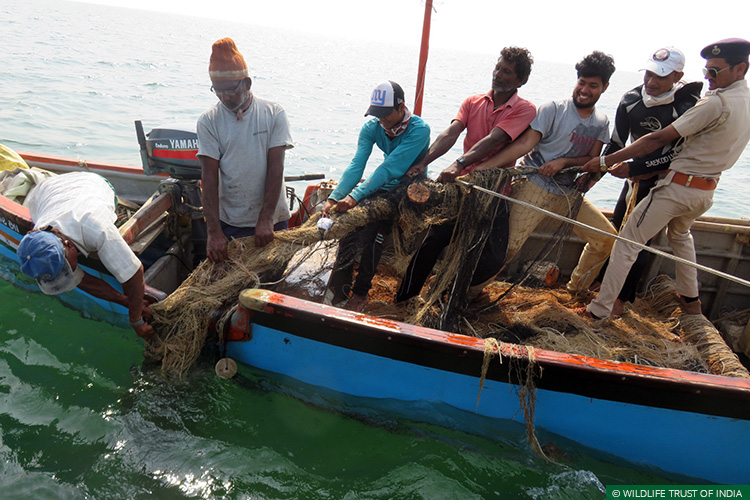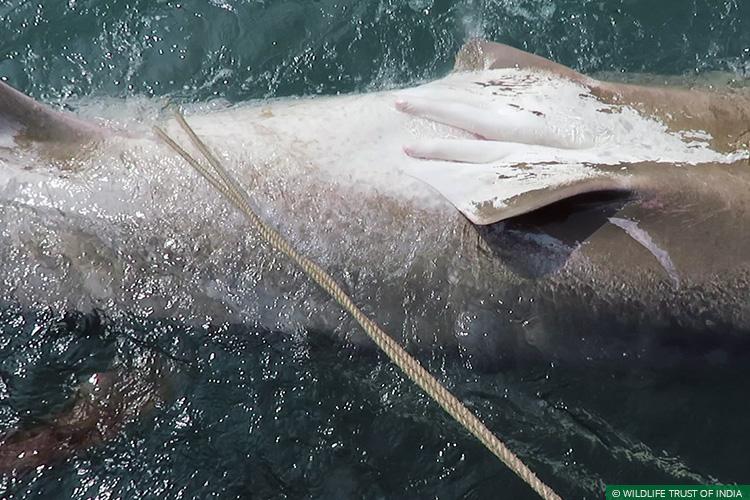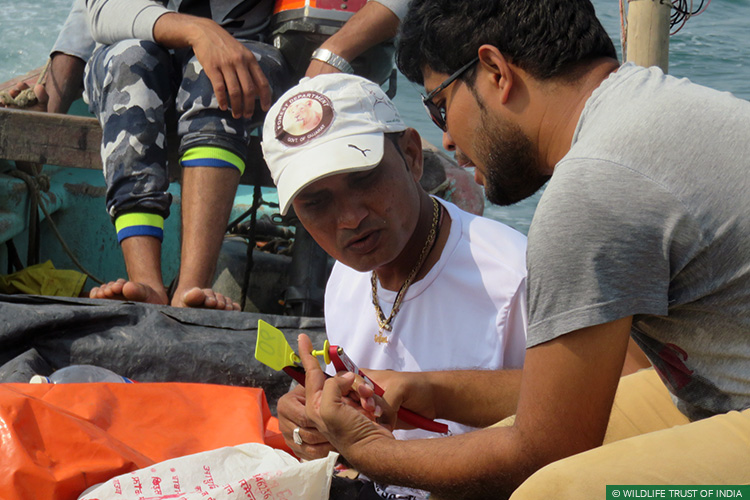An interactive trail map showing the whale shark’s migratory path. (Use the controls on the map to play/pause or zoom in/out.)
Sutrapada, Gujarat, February 27, 2017: The migratory path of a male whale shark that had been satellite-tagged off the Saurashtra coast in November 2017 under the Whale Shark Conservation Project – run by Wildlife Trust of India (WTI) and the Gujarat Forest Department with support from Tata Chemicals Ltd – has now been monitored via satellite for over 100 days. The tagged whale shark is currently in international waters between India and Oman. It has travelled a distance of approximately 1600 km.
* * *
In keeping with the altered operating protocol initiated in December 2016, the WTI team networks with OBM (outboard motor) fishing boats to receive timely intimations of ongoing whale shark rescues. This change in protocol has borne fruit in the form of three successful whale shark taggings, one of which enabled WTI to track a female whale shark for over 200 days – first and longest whale shark migratory movement to be tracked from the Indian subcontinent.
On November 11, 2017, an OBM fisherman named Mohan Pancha Chauhan informed the WTI rescue team that a whale shark was entangled in his fishing nets off the Sutrapada coast. As per procedure, the Deputy Conservator of Forest, Junagadh was informed and local forest officials were involved in the rescue and tagging operation. The WTI team collected a tissue sample for genetic analysis, after which the satellite tag was attached and the whale shark freed. The deployed tag was programmed to transmit signals every day for the first 20 days and every alternate day following that.
This was the eighth successful tagging accomplished under the Whale Shark Conservation Project.




